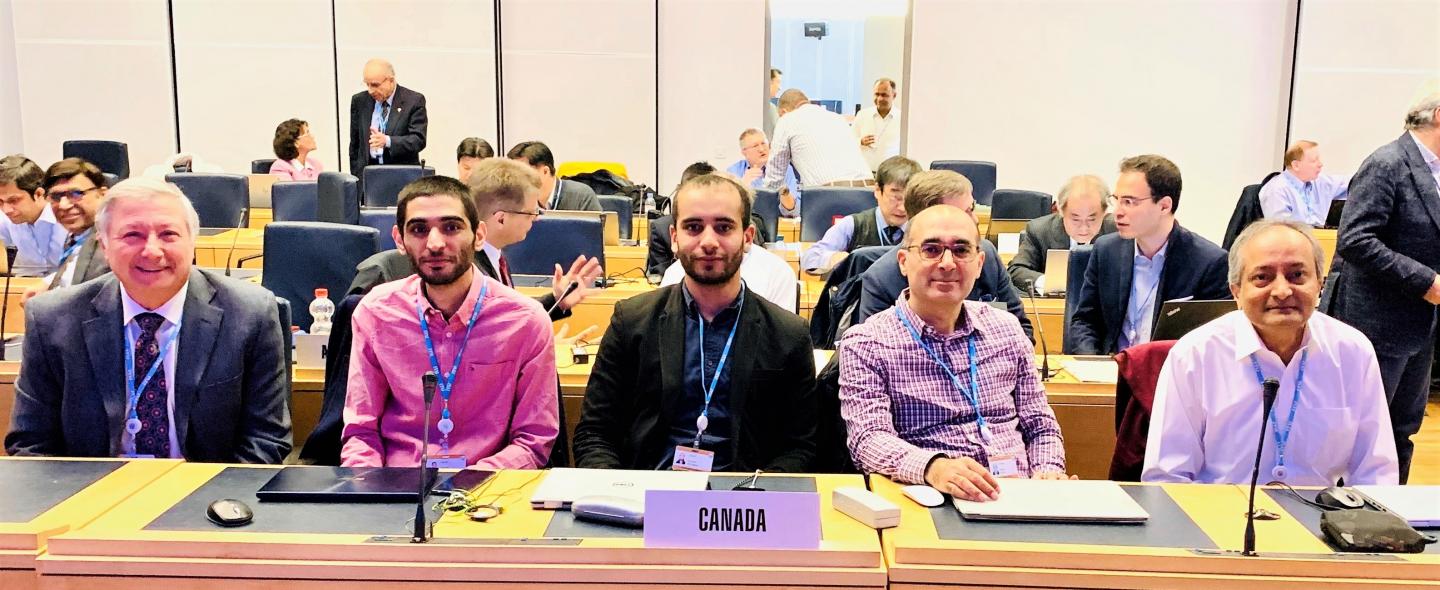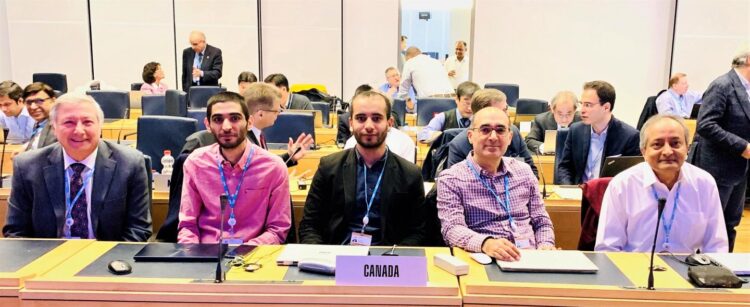Professor Sofiène Affes’ laboratory develops a unique simulator to test the fifth-generation network

Credit: Sendil Kumar (Ericsson India)
5G, the fifth-generation technology standard for cellular networks, promises maximum speeds 20 times faster than 4G, along with 10 times more connection density per square kilometre. For the past two years, Professor Sofiène Affes of the Institut national de la recherche scientifique (INRS) and his team have been mandated by Innovation, Science and Economic Development Canada (ISED) and the Canadian Evaluation Group (CEG) to evaluate this advanced technology thanks to a unique simulator.
5G technology must meet a set of criteria known as IMT-2020 (International Mobile Telecommunications-2020). In addition to faster speeds, the criteria stipulate the number of possible connections and their spectral and energy efficiencies. Some countries or consortiums of companies are proposing Radio Interface Technology (RIT) as a new standard for 5G. These technology candidates are evaluated by independent groups formed by member states of the International Telecommunication Union (ITU) or industry consortiums registered with this United Nations agency.
This ambitious project started in August 2018 when the team designed a simulator to test the candidates’ specs as thoroughly as possible. “We simulated a virtual environment with a 5G cellular network that has the same characteristics as a real network. It’s the most complex and comprehensive approach for evaluating candidates,” said Professor Affes.
“Thanks to our expertise in the field, we are the only Canadian academic institution, with involvement of the University of Toronto, to be mandated by ISED to participate in this ITU process through GEC and alongside Bell Canada, Ericsson Canada, InterDigital Canada, Rogers Communications, and TELUS. This is not the first time my team has been involved in evaluating candidates for new standards. We did the same thing for 4G and IMT-2000 about ten years ago,” said Professor Affes.
Candidates were submitted in July 2019 and evaluated by independent panels. The results were presented in February 2020 at an ITU meeting in Geneva. “We were the only team that was able to cover almost all the candidates. Our work went above and beyond other groups’ efforts, which often provided only partial evaluations. We felt like MVPs of the meeting. It was an incredible experience,” Professor Affes said.
“It was very rewarding. I want to do research within industry, so this was a great opportunity to gain insight into the field of standardization,” said Ph.D. student Souheib Ben Amor, who participated in the project.
“The CEG is very thankful to Professor Sofiène Affes and his two doctoral students – Mr. Souheib Ben Amor and Mr. Oussama Ben Smida – for having carried out the evaluation work related to the IMT-2020 evaluation process. Their simulation was essential in generating the results that went into the final CEG evaluation report – on the basis of which discussions are still ongoing within the ITU,” says Venkatesh Sampath, a senior consultant at Ericsson and a member of the GEC who coordinated the overall work, including that carried out by Professor Affes’ team on the evaluation of candidates through simulations.
“Professor Affes and his team were instrumental in developing a simulator to evaluate the performance of technologies with respect to ITU requirements for the 5th generation of cellular services. They were also heavily involved in analyzing a number of these technologies, enabling Canada to submit a detailed technical evaluation to help the ITU identify which technologies can be certified as having met the requirements,” said Jean-Yves Bernard, senior technology advisor at Rogers Communications Inc. and member of the CEG.
“ISED appreciates the studies conducted by Professor Sofiène Affes and his research team at INRS as part of the Canadian Evaluation Group, says Cindy-Lee Cook, Director of Spectrum and International Standards at ISED. This collaboration supports Canada’s innovation agenda and contributes towards the development of 5G technology standards the International Telecommunication Union.”
Professor Affes’ work will help the ITU make recommendations on the protocols and structures of these revolutionary emerging technologies by the end of the year.
###
About the INRS
The Institut national de la recherche scientifique (INRS) is the only institution in Québec dedicated exclusively to graduate level university research and training. The impacts of its faculty and students are felt around the world. INRS proudly contributes to societal progress in partnership with industry and community stakeholders, both through its discoveries and by training new researchers and technicians to deliver scientific, social, and technological breakthroughs in the future.
Contact :
Audrey-Maude Vézina
Service des communications et des relations gouvernementales de l’INRS
418-254-2156 (cell)
[email protected]
Media Contact
Audrey-Maude Vezina
[email protected]





